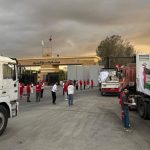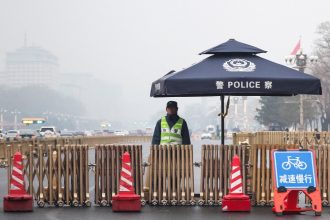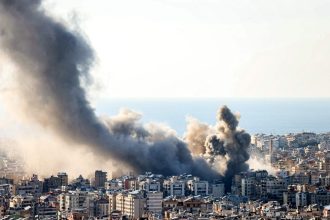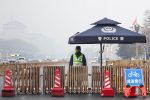Heavy fighting broke out late Saturday along the Afghanistan–Pakistan border as Taliban fighters launched a series of coordinated attacks on Pakistani military outposts. The Taliban accused Islamabad of carrying out airstrikes inside Afghan territory, calling the move a “clear violation of sovereignty.”
Afghanistan’s Ministry of Defence confirmed that Taliban forces conducted what it described as “successful retaliatory operations” in response to alleged Pakistani aggression. Ministry spokesperson Enayatullah Khwarizmi stated that the operation concluded around midnight, warning that any further airspace violations would provoke “a firm and immediate response.”
Reports indicate the clashes spread across more than six border points along the 2,600-kilometre stretch separating the two nations. Taliban sources claimed they seized several Pakistani border posts, while Pakistani officials countered, saying they destroyed multiple Afghan positions in what they termed “defensive retaliatory fire.”
A senior Pakistani security official told AFP that the country’s forces “responded with full force” to the “unprovoked firing” and shot down three Afghan quadcopters suspected of carrying explosives. Pakistan’s Interior Minister Mohsin Naqvi denounced the Taliban’s actions as “unprovoked aggression” and vowed that “no provocation will be tolerated.”
“Firing on civilian areas is a grave violation of international law,” Naqvi stated on X. “Our forces have responded swiftly and decisively—brick for brick.”
Airstrike Allegations and Rising Escalation
The violence follows a series of explosions in Kabul and southeastern Afghanistan earlier in the week. The Taliban-led government accused Pakistan of conducting airstrikes against militant hideouts—claims Islamabad has neither confirmed nor denied.
Pakistan has long accused the Afghan Taliban of sheltering members of the Tehrik-i-Taliban Pakistan (TTP), a banned militant group linked to numerous attacks on Pakistani soil. The TTP, which shares deep ideological ties with the Afghan Taliban, continues to operate across the border despite repeated diplomatic appeals from Islamabad.
On Saturday morning, the TTP claimed responsibility for multiple deadly assaults in Pakistan’s Khyber Pakhtunkhwa province, killing 20 security personnel and three civilians. Defence Minister Khawaja Muhammad Asif recently told Parliament that diplomatic negotiations with the Taliban over curbing the TTP’s activities had failed, adding, “We will not tolerate this any longer. Those providing refuge to terrorists will be dealt with—wherever they are.”
Fragile Relations and a History of Distrust
The renewed violence highlights the deepening mistrust between the two neighbours since the Taliban’s return to power in 2021. Once allies, Islamabad and Kabul now find themselves on opposing sides of escalating border tensions.
Pakistan accuses Afghanistan of failing to rein in cross-border militants, while Kabul accuses Islamabad of violating its airspace. A UN report earlier this year claimed that the TTP received “substantial logistical and operational support” from Afghanistan’s ruling authorities—a charge the Taliban deny.
Despite repeated attempts at negotiation, both countries have struggled to establish a coordinated border management system. The rugged and porous terrain remains a hotbed for smuggling, insurgent activity, and recurring military clashes.
As of early Sunday, neither government confirmed a ceasefire. Officials described the situation as “tense but contained” in Khyber Pakhtunkhwa, while Afghan provincial commanders were reported to be on “high alert.”
This latest escalation comes as Afghanistan’s Foreign Minister Amir Khan Muttaqi visits India—a move analysts say could reshape regional diplomacy amid growing instability. The mounting tension at the border threatens to derail fragile peace efforts and worsen the humanitarian situation on both sides.
In a region already burdened by decades of conflict, this latest clash serves as a stark reminder that political mistrust and militant violence continue to endanger the hope of lasting peace. The human cost of these border skirmishes—displaced families, wounded civilians, and fractured communities—should never be forgotten. Beyond politics and power, it is the innocent who pay the highest price.








